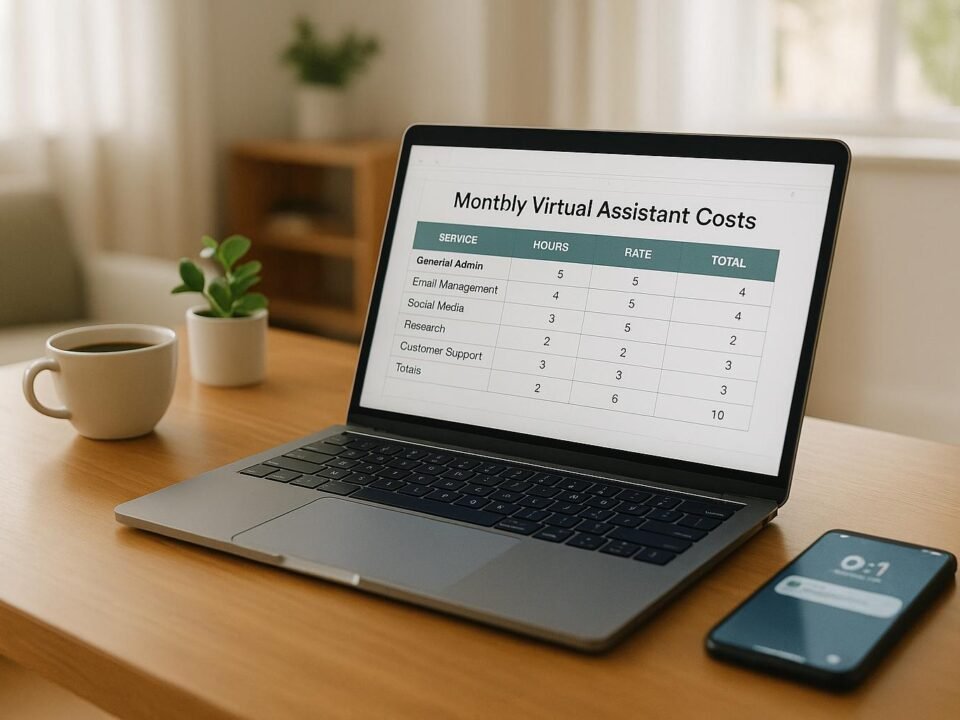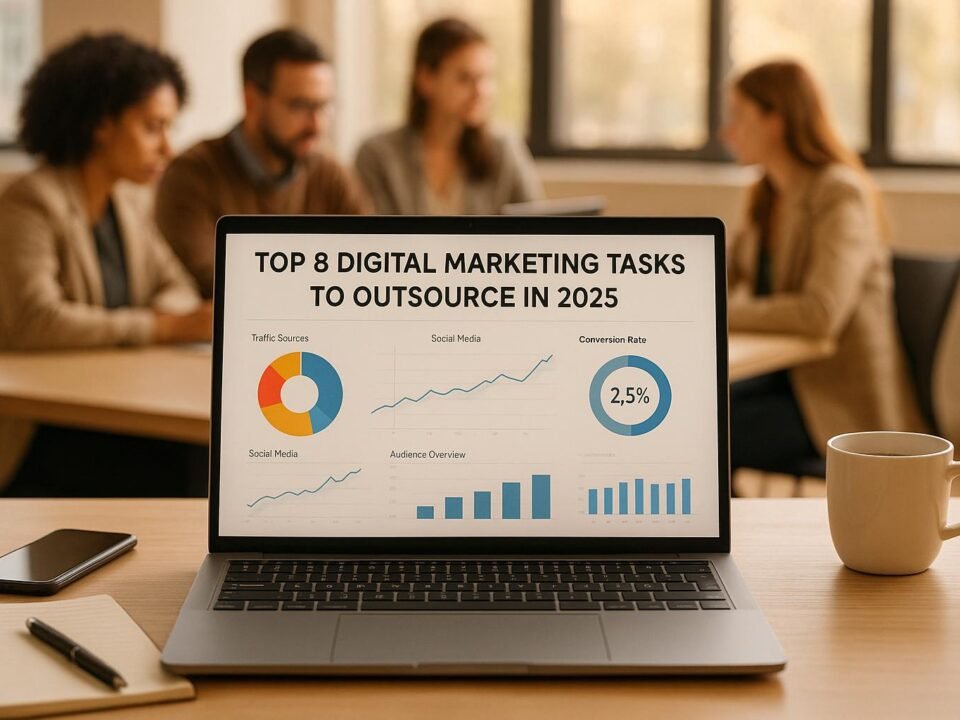Outsourcing to the Philippines in 2025 offers Australian SMEs massive cost savings, access to skilled talent, and flexibility. The industry, now valued at $38 billion, employs over 1.82 million people and contributes 9% to the Philippines’ GDP. Here’s why it’s a game-changer for Australian businesses:
- Cost Savings: Labour costs are up to 70% lower, with skilled professionals earning as little as $650 AUD per month. Virtual assistant services range from $10–$20 AUD per hour.
- Specialised Services: Beyond call centres, the Philippines excels in data analytics, software development, healthcare outsourcing, and even creative fields like animation.
- English Proficiency: Ranked second in Asia, the Philippines ensures smooth communication, with a strong alignment to Western work practices.
- Scalability: Flexible staffing allows businesses to scale up or down without long-term commitments, saving both time and money.
For Australian SMEs, outsourcing to the Philippines isn’t just about cutting costs – it’s about accessing expertise and growing efficiently. Whether you need virtual assistants, IT support, or specialised services, the Philippines offers solutions tailored to your needs.
Why Outsourcing to the Philippines Is the Future of Business in 2025
1. Outsource My Business

Outsource My Business (OMB) offers a tailored solution for Australian small and medium enterprises (SMEs) by connecting them with skilled Filipino virtual assistants. Founded by Mitch, the company caters to both ongoing support needs and project-based tasks, making it an appealing choice for businesses looking to streamline operations without the high costs of in-house staffing. Let’s break down how OMB stands out through its focus on service expertise, cost savings, scalability, and support.
Service Expertise
OMB taps into the growing trend of specialised outsourcing in the Philippines, moving beyond traditional call centre services. Instead, the company matches businesses with virtual assistants skilled in areas like administrative support, customer service, digital marketing, graphic design, and SEO. This shift reflects broader industry trends, with creative and marketing services now making up about 30% of the Philippines’ outsourcing sector.
In addition to virtual assistant services, OMB offers project-specific outsourcing for tasks like website development, social media campaigns, and branding strategies. This dual model gives Australian businesses the flexibility to access both day-to-day support and expertise for specialised projects – without the need to build internal teams.
A key strength of OMB’s model is its recruitment process, which prioritises candidates with strong English proficiency and a cultural understanding of Western business practices. This ensures smooth collaboration between Australian clients and their Filipino team members.
Cost Savings
For Australian SMEs, the financial benefits of working with OMB are hard to ignore. Virtual assistant services are priced between $10 and $20 AUD per hour, offering a cost-effective alternative to local hiring. For example, a role that might cost $67,500–$70,000 AUD annually in Australia can be filled for around $25,000 AUD through OMB, saving businesses up to $45,000 each year.
The savings aren’t just limited to salaries. By outsourcing with OMB, businesses can cut down on overhead expenses like employee benefits, office space, and equipment. When factoring in these additional costs, companies could save as much as $50,000 per staff member annually compared to hiring in-house staff.
Flexibility and Growth Opportunities
OMB’s model isn’t just about cutting costs – it’s also designed to support business growth. Their flexible staffing solutions make it easy for SMEs to scale their operations up or down depending on demand, without the long-term commitments of permanent hiring.
What sets OMB apart is the comprehensive support it offers. Beyond staffing, the company manages HR and payroll, relieving clients of administrative headaches. Regular performance reviews ensure quality, and a replacement guarantee adds an extra layer of confidence in hiring decisions.
This flexibility is especially valuable as Australian wages continue to rise, further widening the cost gap between local and outsourced services. SMEs can quickly access the specialised skills they need without the delays and expenses tied to recruitment, training, and onboarding.
Ongoing Support and Retention
OMB takes a partnership-driven approach, focusing on building long-term relationships rather than one-off transactions. The company provides continuous support through regular performance reviews and offers virtual assistants opportunities for skill development. By investing in upskilling, OMB ensures consistent service quality and keeps its team motivated.
Retention is a common challenge in outsourcing, but OMB addresses this by offering career development pathways and training sessions for its virtual assistants. This not only improves job satisfaction but also ensures Australian clients benefit from reliable, uninterrupted service.
2. Other Niche Outsourcing Providers in the Philippines
The outsourcing industry in the Philippines has expanded and refined its offerings over the years. In 2023, the sector brought in a staggering US$35.4 billion in revenue, with estimates suggesting this will grow by 7% to reach US$37.87 billion in 2024. By 2025, the industry is expected to generate close to US$40 billion. Employing over 2 million people, the sector contributes more than 11% to the national GDP. This growth has paved the way for a diverse range of specialised providers, complementing the services offered by companies like OMB.
Service Specialisation
The focus on niche services has led to providers excelling in areas like AI development, legal process outsourcing (LPO), health information management (HIM), and data analytics. Many firms cater to specific industries such as e-commerce, healthcare, and finance, offering expertise that aligns with industry-specific needs and compliance standards. For Australian SMEs, this means access to professionals who understand their unique requirements. These providers now deliver advanced services like content moderation, data analytics, and technical support.
Real-world examples highlight this specialisation. In 2022, Priority Care Medical, an Australian healthcare provider, saw all its patient booking slots filled after working with Emapta’s marketing team. This collaboration led to doctors being booked two months in advance and receiving glowing reviews. Similarly, Axial, a financial technology company, saved approximately US$2 million after partnering with Enshored. The BPO provider managed 20% of Axial’s deal flow, showcasing how targeted expertise can drive measurable results.
Cost Efficiency
One of the biggest draws of outsourcing to the Philippines is the potential for significant cost savings. Labour costs are up to 70% lower, and operating expenses are reduced thanks to favourable economic conditions and government incentives. With minimum wages around $18 AUD per day and skilled graduates earning approximately $650 AUD per month, the cost of hiring is highly competitive. Additionally, businesses can cut labour costs by up to 60% and operating expenses by 50%. The lower cost of living and doing business in the Philippines makes it a practical choice for SMEs looking to optimise their budgets.
Scalability for SMEs
Much like OMB’s flexible approach, other providers in the Philippines offer scalable solutions tailored to the needs of SMEs. These companies can ramp up operations during busy periods and scale down during quieter times. The industry’s growth is evident in employment numbers, with the Philippine IT-BPM sector employing 1.82 million people in 2024, a 7% increase from the previous year. Beyond major cities, secondary hubs are emerging as attractive outsourcing locations, offering competitive salaries and access to skilled talent. This expansion gives Australian businesses a wider pool of options to match their specific needs and budgets.
Support and Retention
To maintain high service standards and employee satisfaction, Philippine providers have adopted robust support systems. Permanent remote and hybrid work models are now the norm, offering flexibility, access to a broader talent pool, and reduced overheads. Providers also invest heavily in onboarding and knowledge transfer processes, ensuring faster results and better long-term outcomes.
Case studies show how these practices deliver tangible benefits. For instance, in 2022, Spa Week Media Group reported improved customer satisfaction after outsourcing its customer service to FWS. The company’s business development officer praised FWS for its professionalism, strong project management, and effective client communication.
Additionally, the emphasis on cybersecurity has grown, with providers making significant investments to strengthen data protection measures. Combined with strong English proficiency and alignment with Western business practices, these factors make Philippine outsourcing providers a dependable choice for Australian SMEs looking for reliable, long-term partnerships.
sbb-itb-cf56daf
Advantages and Disadvantages
Australian SMEs need to carefully weigh the benefits and challenges when deciding on the best outsourcing strategy for their needs.
| Aspect | Advantages | Disadvantages |
|---|---|---|
| Cost Efficiency | • Operational costs can be reduced by up to 70% • Average hourly rates of $12-14 AUD, compared to $30-38 AUD in the US • Annual employee costs, including benefits, are around $10,000-12,000 AUD |
• Hidden costs related to training and onboarding • Potential expenses for quality control • Investment needed in communication tools |
| Service Offerings | • Specialised skills in areas like AI development, legal process outsourcing, and data analytics • 92% English literacy rate and strong cultural alignment • Access to a talent pool of 1.82 million skilled BPO workers |
• Limited direct control and oversight • Possible gaps in industry-specific expertise • Communication issues, even with high English proficiency |
| Scalability | • Workforce flexibility allows quick scaling up or down • 24/7 service coverage enabled by time zone differences |
• 12-14 hour time difference can hinder real-time collaboration • Difficulties in coordinating overlapping work hours • Challenges with resolving urgent issues immediately |
| Support Systems | • Flexible remote and hybrid work models • Government support, including tax incentives • Investments in cybersecurity and data protection |
• Internet connectivity issues in certain areas • Concerns around intellectual property protection • Security risks if protocols are not properly implemented |
Key Insights
The financial benefits of outsourcing are hard to ignore. Salary savings of up to 70-80% are achievable without sacrificing access to skilled talent. As Cybalink Solutions highlights, the combination of a highly skilled workforce and strong cultural alignment drives operational efficiency.
That said, there are challenges, particularly the time zone differences and potential security risks. Addressing these requires clear workflows, effective project management, and stringent cybersecurity measures.
To mitigate risks, start with a trial project, hold regular video meetings, monitor performance closely, and ensure contracts explicitly protect intellectual property.
For Australian businesses exploring niche outsourcing, the benefits often outweigh the drawbacks – provided there’s a focus on careful planning. Success lies in selecting providers that align with your business goals and establishing strong communication and security practices from the beginning.
Conclusion
The Philippines continues to shine as an attractive outsourcing hub for Australian SMEs in 2025, offering a mix of skilled professionals, cost advantages, and compatibility in work culture. With the BPO sector projected to reach $40 billion and employ around 1.82 million workers by 2025, the industry promises both stability and scalability.
Key trends, such as the integration of AI and robust upskilling programs, are enabling Filipino providers to move beyond basic administrative tasks. Filipino professionals, earning approximately $400 AUD per month, deliver expertise that rivals more expensive local services, making it a cost-effective solution for Australian businesses.
For SMEs, a hybrid approach – keeping strategic roles in-house while outsourcing areas like IT support, customer service, digital marketing, and accounting – can lead to savings of up to 70% without compromising quality or control.
"There are people in the Philippines … who can do your job better than you can for $5 an hour, and work 60 hours a week, no complaints, and with AI, their English is better than yours." – Nick Huber
The key to successful outsourcing lies in selecting the right partner and establishing clear performance metrics. Start with a trial project to evaluate compatibility, maintain consistent communication, and prioritise cybersecurity from the beginning. Setting measurable KPIs and leveraging project management tools can help track progress effectively.
Providers like Outsource My Business demonstrate how outsourcing can bridge the gap for Australian SMEs. By offering skilled Filipino virtual assistants at hourly rates between $10 and $20 AUD, they are helping businesses achieve operational efficiency while maintaining high standards.
The expansion of outsourcing beyond Manila is another notable trend, offering competitive pricing and access to a broader range of talent. Combined with the Philippines’ strong English proficiency and alignment with Western work practices, these advantages minimise communication challenges and enhance collaboration.
For Australian SMEs aiming to scale efficiently in 2025, outsourcing to the Philippines presents a clear path to growth. By treating outsourced teams as integral parts of the business rather than mere cost-saving measures, companies can unlock reduced expenses, heightened efficiency, and specialised skills that might otherwise be out of reach.
FAQs
What advantages does outsourcing to the Philippines offer Australian small businesses beyond saving money?
Outsourcing to the Philippines offers Australian small businesses a host of advantages that extend far beyond just saving money. The country boasts a workforce that is not only highly skilled and well-educated but also proficient in English, ensuring clear and effective communication. Filipino professionals are increasingly taking on specialised roles, excelling in areas like data analysis, market research, and digital marketing.
What also sets the Philippines apart is the natural synergy between Australian and Filipino work cultures, which fosters seamless collaboration and strong professional relationships. On top of that, the Philippines is actively adopting cutting-edge technologies, including AI and automation, helping businesses streamline processes and operate more efficiently. These combined strengths make the Philippines a standout choice for Australian SMEs aiming to scale up and maintain a competitive edge.
How do the Philippines’ English skills and cultural similarities improve outsourcing services?
The Philippines’ strong command of English is a cornerstone of its success in the outsourcing industry. With about 92% of its population fluent in English, professionals in the country can communicate effectively with international clients. This fluency minimises the risk of miscommunication and ensures tasks are completed with precision. For businesses around the globe, this linguistic advantage makes the Philippines an appealing outsourcing partner.
Another key factor is the cultural alignment between the Philippines and many Western nations. Influenced by historical ties and shared values, this cultural connection helps build trust and fosters smooth collaboration. It allows Filipino service providers to adapt easily to the needs and expectations of their clients, creating a more seamless working relationship. These strengths solidify the Philippines’ reputation as a leading outsourcing hub for businesses looking for reliable and culturally aligned support.
How can Australian businesses successfully collaborate with outsourcing providers in the Philippines?
To create a strong and effective partnership with outsourcing providers in the Philippines, Australian businesses should prioritise clear communication and aligning work practices. Using collaboration tools and scheduling regular check-ins can make it easier to bridge time zone gaps and keep everyone on the same page. Providing detailed guidelines and comprehensive training is also key to ensuring Filipino virtual assistants are equipped to meet your expectations.
Building a positive working relationship is equally important. Recognising accomplishments and offering constructive feedback not only boosts morale but also enhances overall productivity. Lastly, take the time to thoroughly evaluate potential outsourcing partners. Look for those with a solid track record and the right resources to support your business objectives effectively.




